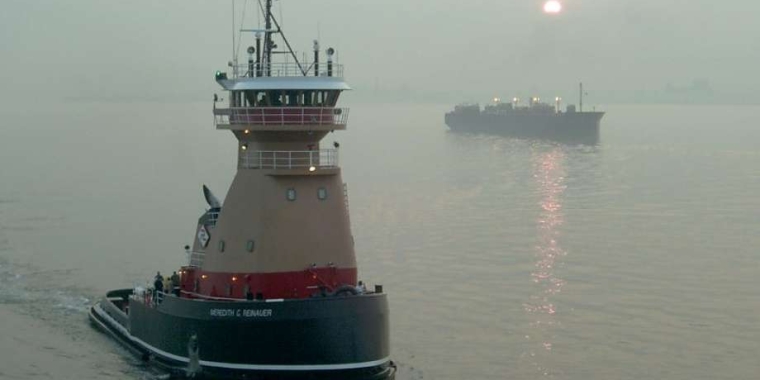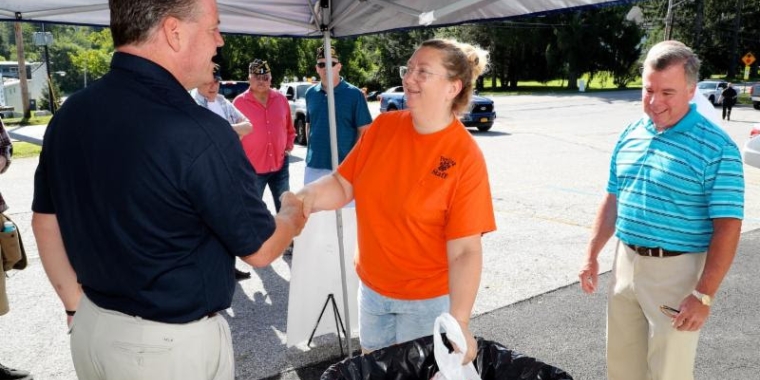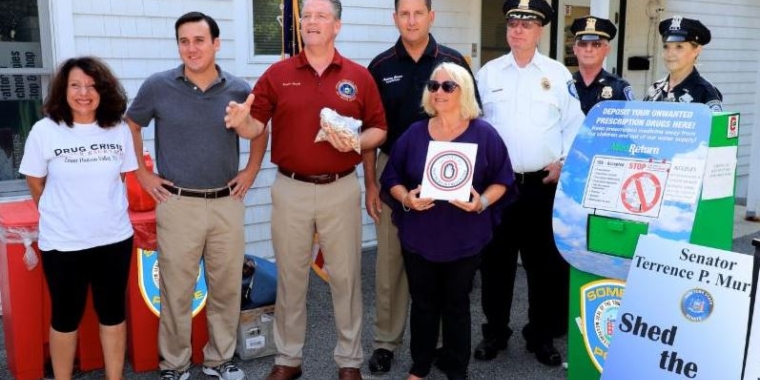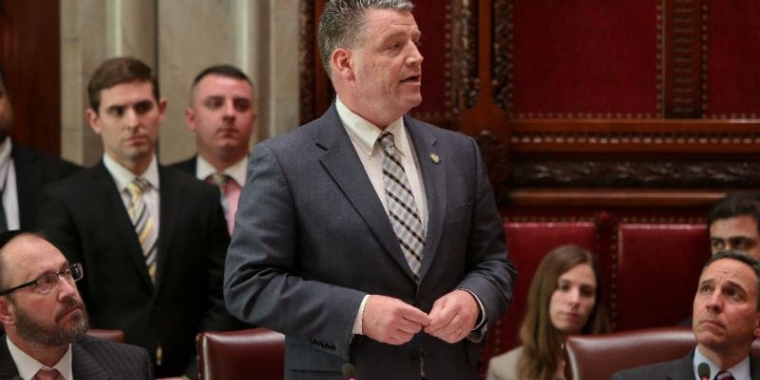Fuel Barge Runs Aground In Hudson, Renews Anchorage Concerns
April 4, 2017
-
COMMITTEE:
- Investigations and Government Operations

ALBANY, NY - Amidst news that a barge carrying 60,000 barrels of gasoline ran around in the Hudson River today, State Senator Terrence Murphy renewed his call that the Coast Guard withdraw its proposal to establish ten new anchorage grounds on the Hudson River from Yonkers to Kingston, New York as unsafe and unsound. The Coast Guard had originally justified its proposal as a matter of economics rather than safety, stating that "trade will increase on the Hudson River over the next few years ... and federally designated anchorages are the key to supporting trade."
"While we are fortunate that the barge which ran aground today is not currently leaking, it plainly demonstrates the danger of the Coast Guard's ill-conceived anchorage proposal," Senator Murphy said. "There is already a firm legal basis which shows the rule is inconsistent with other federal laws and must be withdrawn. Situations such as this are uncommon, but today proves once again that the Hudson River should not be converted into an industrialized parking lot for fuel barges."
While serving as chair of the State Administrative Regulations Review Commission, Murphy first discovered the Coast Guard's proposal in June of last year. He alerted other elected officials, held several press conferences as well as a public hearing on the matter after the Coast Guard refused to do so.
Along with students from Pace University's Environmental Law Policy Clinic, Murphy also proved the Coast Guard violated its own administrative procedure by failing to conduct a focused Waterways Analysis and Management System (WAMS) and a Ports and Waterways Safety Assessment (PAWSA) and notify the affected stakeholders. The Senate hearing also uncovered the fact that the United States Coast Guard is required to receive a recommendation from the United States Army Corps of Engineers recommending the establishment of such anchorages prior to issuing an advance notice of proposed rulemaking, which was not done, according to the State Attorney General.
Murphy has noted that the Coast Guard also failed to observe consultation and consistency review requirements for various state and federal legal designations in and along the river, including the EPA's National Priorities List; various federal and state Essential Fish Habitat and Significant Coastal Fish & Wildlife Habitats; the federal-state Hudson River National Estuarine Research Reserve; the state's Coastal Zone Management Program and Local Waterfront Revitalization Programs; the federal-state Hudson River Valley National Heritage Area program; the Hudson River National Historic Landmark District; and the federal National Heritage River program.
"Proponents of creating these anchorages have said they are 'customary anchorages' yet an independent analysis by Intertek cross-referenced from the Nationwide Automatic Identification System determined that not one of the emergency anchoring events in 2015 took place in any of the proposed anchorage sites," Murphy said. "The anchorages may make the river even more unsafe. The anchorages are located in areas as narrow as .72 nautical miles which would further impede commercial and recreational traffic in the navigation channel. If these anchorages increase the risk of a collision, in light of today's accident, why is the Coast Guard still considering this?"
Murphy said that if the Coast Guard does not withdraw the proposed rule this month or schedule a public hearing, he will use his power as chair of the Senate Committee on Investigations and Government Operations to hold another public hearing in order to determine why the rule has not yet been withdrawn.
Share this Article or Press Release
Newsroom
Go to Newsroom


